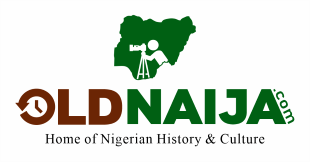Hausa/Fulani Pre-colonial Political Administration

Fulani took over the political leadership of Hausa states in the early 19th century. After the great Jihad war (1804-1810) led by Usman Dan Fodio, the former fourteen Hausa states were merged and then divided into two caliphates.
The eastern caliphate (which included states like Yola, Gombe, Kano, Zaria and Katsina) had Sokoto as its capital while the western caliphate (including Ilorin, Argungun and Kontagora) had Gwandu as its capital.
Usman Dan Fodio became the head (Sarkin Muslim) of the whole Hausa land while the control of Sokoto (eastern caliphate) and Gwandu (western caliphate) went to Bello, Usman Dan Fodio’s son and Abdullah, Usman Dan Fodio’s brother respectively.
Furthermore, the Sokoto and Gwandu caliphates were subdivided into emirates for easy administration. Each emirate was headed by an Emir who was appointed from two or three ruling families with the approval of the Emir of Sokoto or Gwandu, depending on the emirate the selection was made. These lesser Emirs were responsible to the Emirs of Sokoto and Gwandu respectively.
However, in each emirate, the Emir was assisted by some officials who were assigned to certain duties. These officials were:
- Waziri who was the administrative officer or prime minister;
- Galadima who was in charge of the capitals;
- Madawaki who was the commander of the army;
- Dogari who was the head of the police;
- Maaji – the treasurer;
- Sarkin Ruwa – the river fishing official;
- Sarkin Fada – who was responsible for the administration of the palace;
- Sarkin Pawa – the head of all butchers.
In the Hausa/Fulani pre-colonial political administration, these officials who were appointed by the Emir were consulted in running the affairs of the emirate.
This is similar to the Yoruba political administration. But unlike a Yoruba king, power was centralised in the hands of the Emir who had absolute control over these officials and could depose any of them at his will.
Each emirate was further divided into districts which was headed by an official known as Hakimi. The Hakimi was appointed by the Emir to oversee the affairs of each district which included maintaining peace and order and collection of taxes like Jangali (cattle tax), Jizyah (land tax) and Zakat. The Hakimi was however assisted in carrying out these functions by the village heads whom he appointed himself.
The judicial administration of Hausaland was based on Sharia law which covered a wide range of issues like marriage, divorce, theft, murder, debt and so on. These laws were interpreted by the Alkali judges in the Alkali courts.
Each emirate could have more than one Alkali court depending on its size. However, issues that were not covered by the Sharia law were transferred to the Emir court where the Emir could preside over such issues.
The Emir must be careful in making his laws or judgments as they must not go against the will of Islam religion which was the main practice of the people in Hausa land.
For example, the Emir could not legalise the drinking of alcohol in the emirate. Therefore, the legislative powers of the land can be said to be solely wielded by the Emir in accordance to the religion of Islam.
The Hausa/Fulani pre-colonial political administration was a highly centralised one with the Emir possessing almost all the powers. This was one of the main reasons why the Indirect Rule System was very successful in the Northern part of Nigeria (Hausa/Fulani empire).
If you have questions, kindly use the comment box below. Thanks for reading, OldNaija.
References:
- Teslim Opemipo Omipidan. Pre-colonial Systems in Nigeria. OldNaija.
- C. C. Dibie; Essential Government for Senior Secondary Schools; 3rd edition; Lagos; Tonad Publishers; 2008
- E. Ola Abiola. (May 1974). A Textbook Of West African History.
Questions? Advert? Click here to mail us or click here to call us.












There is no mention of the sarki who was the head of the hausa/fulani political system, why? or is the title EMIR the same thing as the SARKI?
Thank you very much, Mr. Roberta Dode. The Emir is also known as the Sarkin which means ‘head’ or ‘leader’. Your visit and comment is highly appreciated.
Hello. Could you point me to reliable books which discusses the pre-colonial legal systems in Nigeria> regards.
Nice work. Sir. Please how can I reference the work? Writing my BA project and I used this work. I need the reference. Thanks
Okay sir. Use this:
Pre-Colonial Political Administration In Hausaland; Teslim O. Omipidan; OldNaija.com; 2014
is cool
Thank you, Awele Ofili.
Very insightful piece. However, you did not discuss the several sources of revenue in the system
Thanks for your comment Mr. Chase Ogbuagu. We will include it very soon
pls am confuse on this question.the judiciary system of hausaland in the pre colonial.pls help.
Don’t be confused, Mr. Nwaigwe Prince. The judiciary system of Hausa was based on Sharia law which was interpreted by the Emir and the Alkali judges. The lesser matters were handled by the Alkali judges while important ones were handled by the Dmir. However, issues not covered by the Sharia law can be handled by the Emir. Thanks for your visit, Mr. Nwaigwe Prince.
Mr.Teslim Opemipo Omipidan thank you.
Excellent web site you have got here.. It’s hard to find quality writing like yours
these days. I really appreciate people like you!
Take care!! https://gamehotnews.com/2017/01/24/diy-wooden-beds-for-kids/
Thank you very much for your nice words, Mr. Fabian. An excellent website you’ve gotten too.
Thank you Sir,
Your work seems more detailed than most work I have come across.
Keep it up, we learn little, advance in it and tell more to generations to come..
You are welcome, Mr. Arimokwu Sunday. We will try all our possible effort to lift this platform to greater heights. Your visit and kind words are appreciated. Thank you.
alright, thanks for returning the appreciation. now that i know that you are 24 hours available, i will make sure through your help, we can be solving some academic issues together.
It will be my pleasure sir. Thank you.
i really value this…. thanks!
You’re welcome, Mr. Ken. We are glad you did. Thanks for your visit.
please I need help on this question :
explain some of the contraction that surrounded the origin of man in the Yoruba kingdom.
thanks …
please I need help on this question :
explain some of the contradiction that surrounded the origin of man in the Yoruba kingdom.
thanks …
Thanks for your question, Winner. There are many contradictions that surrounded the origin of the Yoruba people (or “man in the Yoruba kingdom”). There is a mythical account that stated the origin of the Yoruba people starting from when a supernatural being or a Yoruba god, Oduduwa created the earth and Obatala made human. It further stated that Oduduwa descended in Ile-Ife (the ancestral home of the Yoruba people) and begat seven children who founded the entire Yoruba race. https://oldnaija.wordpress.com/2015/07/15/mythical-creation-of-the-yoruba-tribe/
Also, there is also another account that claimed that the Yoruba people originated from Mecca. It mentioned a man named Lamurudu (Nimrod) and his priest Yar-harba (from which the name Yoruba was coined) as the progenitor of the Yoruba race. An account also pointed to Lamurudu as the father of Oduduwa.
Also, a renowned writer and monarch, Wajeed Obomeghie, declared that Oduduwa, the progenitor of the Yoruba race, was one Ekaladerhan, a Benin Prince, who had once escaped the community’s axe-man, but later re-appeared in Ife, after wandering in the bush from Benin for a longtime.
The creation account of the Yoruba people has appeared in different narrations all widely believed by Yoruba people (either in fractions or whole).
Thanks for your visit, Winner. You have a wonderful blog. Please visit often.
I really appreciate this your site, pls I want you help me find out the factors that lead to the establishment of the British empire. thanks
Thank you for your kind words, Mr. Ismail Aliyu. On what you requested for, we are sorry, we only provide information on Nigerian history or other related topics. But here are few links that might be of help.
* https://en.m.wikiversity.org/wiki/British_Empire/Tudor_Origins
* https://www.britannica.com/place/British-Empire
*http://www.britishempire.co.uk/timeline/timeline.htm
* http://www.historyworld.net/wrldhis/PlainTextHistories.asp?historyid=aa16
We hope these help. Thank you for your visit. We await your response.
I enjoy ur site
I’m glad you do. Thank you for your visit. Kindly do check back.
Wow…This is brilliant..Its so detailed..Thanks
You are welcome, Adeyipo Inumidun. Thank you for your visit. Kindly do check back.
I’m so greatful for this explanation….but pls why was the judicial administration of Hausaland based on sharia law?………….help me pls
Thank you for the question, Mr. Henry Chidera Victor. The judicial administration of Hausaland is based on sharia law because Islam is the predominant or mostly practised religion in Hausaland and the Sharia law is a subset of Islam religion. Sharia laws are Islamic rules and regulations which guides “the believers” (Muslims) in their day to day activities. I hope I have answered your question. Thank you for your visit.
Pls i need to understand pre-colonial administration and pre-colonial political system is there any relationship between them thanks.
Great one, am a new blogger, can I repost on my blog?
Pls, I want to brief consequences of the Fulani jihad {Danfodio jihad}.
please help me with this questions, the Hausa pre-colonia administrative system .
what are the main duties of the waziri in the hausa political administration?
What the meaning of Zakat
It means tax. Thanks for visiting, Mr. Joshua. Kindly do check back
Who appoint the emir on like the yoruba system were the BASHORUN appoint the king
you are indeed doing a great job in this your site
your answers are insightful and it goes directly to the point. you are good at what you do, keep the pace up bro.. thanks
You’re welcome, Mr. Abisedrick Jeremiah. Thank you for your visit and kind comment too. Please do visit again.
Wow, thanks.. So helpful
what about political-administration-of-the-igboland
Please what are the other taxes that were paid apart from he above 2 mentioned